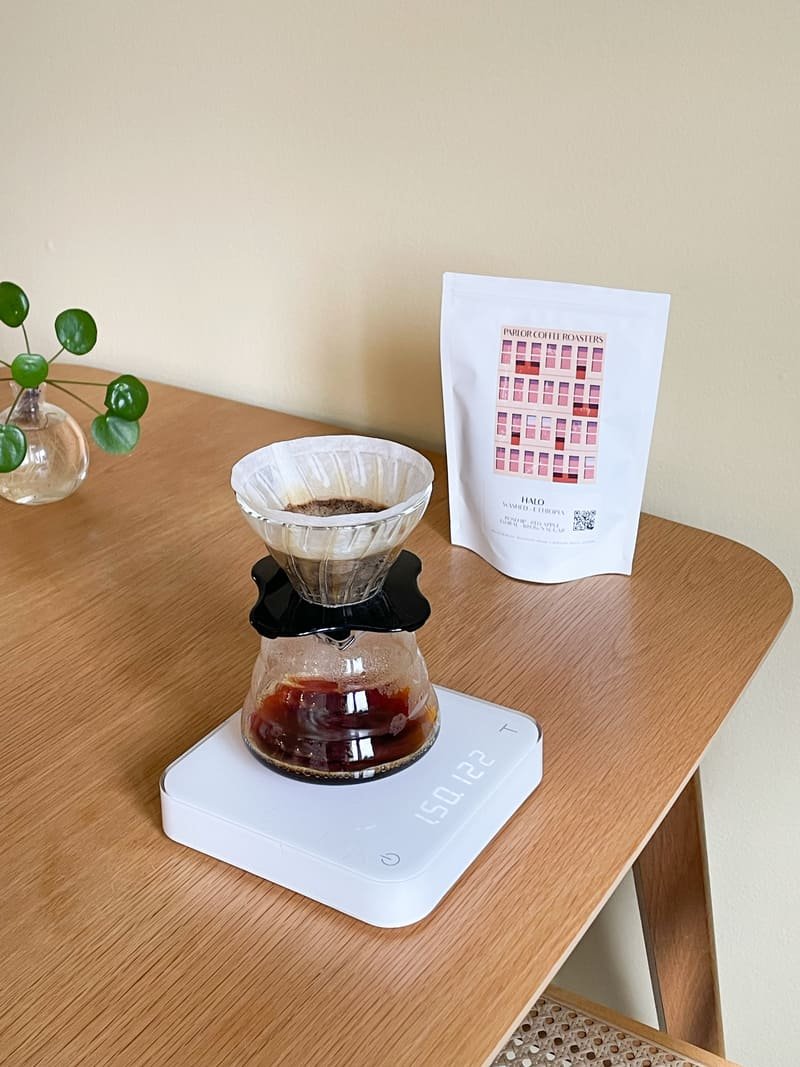For our first box of 2024, we’re off to Belgium. We’re welcoming Parlor coffee roasters with some stellar coffee. In January’s box, you’ll find a complex and fruity Ethiopian coffee, an elegant Peruvian coffee, and a delicate Indonesian coffee (our first coffee from Indonesia!). We think there’s no better way to start the new year.
HALO
Origin: Ethiopia
Process: Washed
Altitude: 1900 - 2100 masl
Producer: smallholder farmers
Varieties: Welisho and Dega
Tasting notes: red apple, rosehip, brown sugar, dark florals
Halo washing station is situated in Halo Beriti, within the Gedeo zone in Ethiopia. This facility caters to 170 farms, which typically span 1-2 hectares each. These farms benefit from rich, fertile, red soils and high altitudes. This coffee, from the Welisho and Dega varieties, is a washed processed coffee that is complex and fruity. It has notes of red apple, rosehip, brown sugar and dark florals.
EL LIMON
Origin: Peru
Process: Washed
Altitude: 1500 - 2000 masl
Producer: Olmedo Córdova Neira
Varieties: Caturra, Typica, Pache
Tasting notes: mandarin, hazelnut milk chocolate, red apple
Olmedo Córdova Neira’s farm, ‘El Limon’, is home to bourbon, pache and pacmara, from Peru’s region of San Ignacio. Located in the Tabaconas district, his farm sits at 1550 masl and holds 2 ha of planted coffee. The farm’s location is truly special, as its altitude, tropical climate and top-quality varieties have formed excellent conditions for the production of specialty coffee. With an entrepreneurial spirit, Mr. Córdova highlights the importance of his family’s efforts in achieving the highest coffee quality, which we are lucky to be able to taste from his farm.
FRINSA SARAPAN
Origin: Indonesia
Process: extended fermentation washed
Altitude: 1400 masl
Producer: Wildan Mustofa, Atieq Mustikaningtyas
Varieties: Sigarar Utang
Tasting notes: dried stone fruit, milk chocolate, fig
The coffee processing occurs at Frinsa Estate, with their wet mill situated at 1400 masl. Lactobacillus, a probiotic bacterium used to refine fermentation, is added to the coffee after pulping. It is dry fermented for 12-14 hours, and then dried on the ground or parabolic dryers as a dry-hulled lot. Due to the wet, humid climate, most of their coffees are also pre-dried in their greenhouse, a groundbreaking shift for the Indonesian market. This has resulted in more uniform drying, and therefore more consistent outcomes.
Curious about our next box? Join our subscription!


